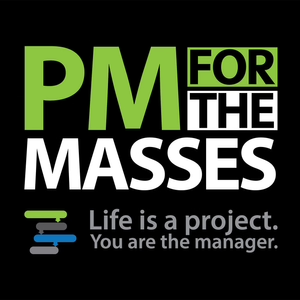
Ep 693: Are We Getting Happier At Work?
04/04/25 • 22 min
Research consistently shows that happy employees are more engaged, more productive, and stay with their companies longer. While many organizations recognize this connection, they often lack the data and insights needed to make meaningful improvements in their workplace culture. With different generations having different expectations from work and regional variations in what contributes to happiness, reliable metrics are essential for making the right decisions.
So, how can employers better understand workplace happiness and use this data to attract and retain talent?
My guest this week is Matt Ward, Head of Recruitment Services at WorkL. For their latest research report, WorkL surveyed 400,000 employees in 26 industries across 100 countries on the key drivers of workplace happiness. The results give us some fantastic insights that can help make talent acquisition and retention strategies significantly more effective.
In the interview, we discuss:
- The findings from WorkL's latest workplace happiness report
- The six key elements that contribute to workplace happiness
- Why workplace happiness is rising globally
- Variations across generations and genders
- What is driving flight risk?
- The continued importance of flexibility at work
- How can Talent Acquisition teams leverage happiness data for competitive talent advantage?
- What does the future look like?
Research consistently shows that happy employees are more engaged, more productive, and stay with their companies longer. While many organizations recognize this connection, they often lack the data and insights needed to make meaningful improvements in their workplace culture. With different generations having different expectations from work and regional variations in what contributes to happiness, reliable metrics are essential for making the right decisions.
So, how can employers better understand workplace happiness and use this data to attract and retain talent?
My guest this week is Matt Ward, Head of Recruitment Services at WorkL. For their latest research report, WorkL surveyed 400,000 employees in 26 industries across 100 countries on the key drivers of workplace happiness. The results give us some fantastic insights that can help make talent acquisition and retention strategies significantly more effective.
In the interview, we discuss:
- The findings from WorkL's latest workplace happiness report
- The six key elements that contribute to workplace happiness
- Why workplace happiness is rising globally
- Variations across generations and genders
- What is driving flight risk?
- The continued importance of flexibility at work
- How can Talent Acquisition teams leverage happiness data for competitive talent advantage?
- What does the future look like?
Previous Episode

Ep 692: Labour Markets In Transition
Understanding today's complex labor market requires accurate data rather than just following headlines or anecdotes. For businesses and talent professionals, having reliable insights into hiring trends, wage movements, and worker expectations is essential for making informed decisions in these uncertain times.
My guest this week is Jack Kennedy, Senior Economist at Indeed; drawing from Indeed's real-time analysis of millions of job postings, CVs, and marketplace behaviors, Indeed Hiring Lab's research provides a unique window into what's happening in the job market. We're focusing on the UK market in this conversation, but Jack does provide some broader global insights and highlights the many global commonalities when it comes to worker motivations, aging populations, and the impact of AI
In the interview, we discuss:
- The state of the UK labour market in early 2025
- How geopolitical issues are impacting hiring trends globally
- The surprising resilience of wages despite market cooling
- Primary motivators for job seekers in today's market
- The truth about remote and hybrid work trends versus media narratives
- How AI is already reshaping employment and creating new opportunities
- A growing focus on neurodiversity in job postings
- Preparing for demographic challenges and an aging workforce
- The Labour market outlook for the next 12-18 months
Next Episode

Ep 694: Supercharging Talent Mobility With Science
Internal talent mobility remains a significant challenge for organizations despite widespread recognition of its importance. While companies understand the value of deploying existing talent to meet changing business needs, they often lack the scientific approach needed to make this work at scale. Many organizations collect a lot of data on people during their hiring process but fail to use it throughout the employee lifecycle, creating artificial barriers between departments and limiting career movement when it's needed most.
So, how can organizations apply scientific principles to talent mobility to create more dynamic internal labor markets that benefit everyone?
My guest this week is Lucy Beaumont, Solutions Lead, Talent Management at SHL. In our conversation, Lucy shares valuable insights from her work applying scientific assessment methodologies to internal mobility challenges.
In the interview, we discuss:
- How are we defining "skills-based hiring"?
- The difference between perishable skills, semi-durable skills, and durable skills
- The three main barriers preventing effective internal mobility
- Mapping skills across the organization in a scaleable way
- Scientific approaches to balancing build, buy and borrow talent strategies.
- Building workforce resilience through talent intelligence
- What does the future look like for talent mobility?
If you like this episode you’ll love
Episode Comments
Featured in these lists
Generate a badge
Get a badge for your website that links back to this episode
<a href="https://goodpods.com/podcasts/recruiting-future-with-matt-alder-whats-next-for-talent-acquisition-hr-35983/ep-693-are-we-getting-happier-at-work-88735220"> <img src="https://storage.googleapis.com/goodpods-images-bucket/badges/generic-badge-1.svg" alt="listen to ep 693: are we getting happier at work? on goodpods" style="width: 225px" /> </a>
Copy






